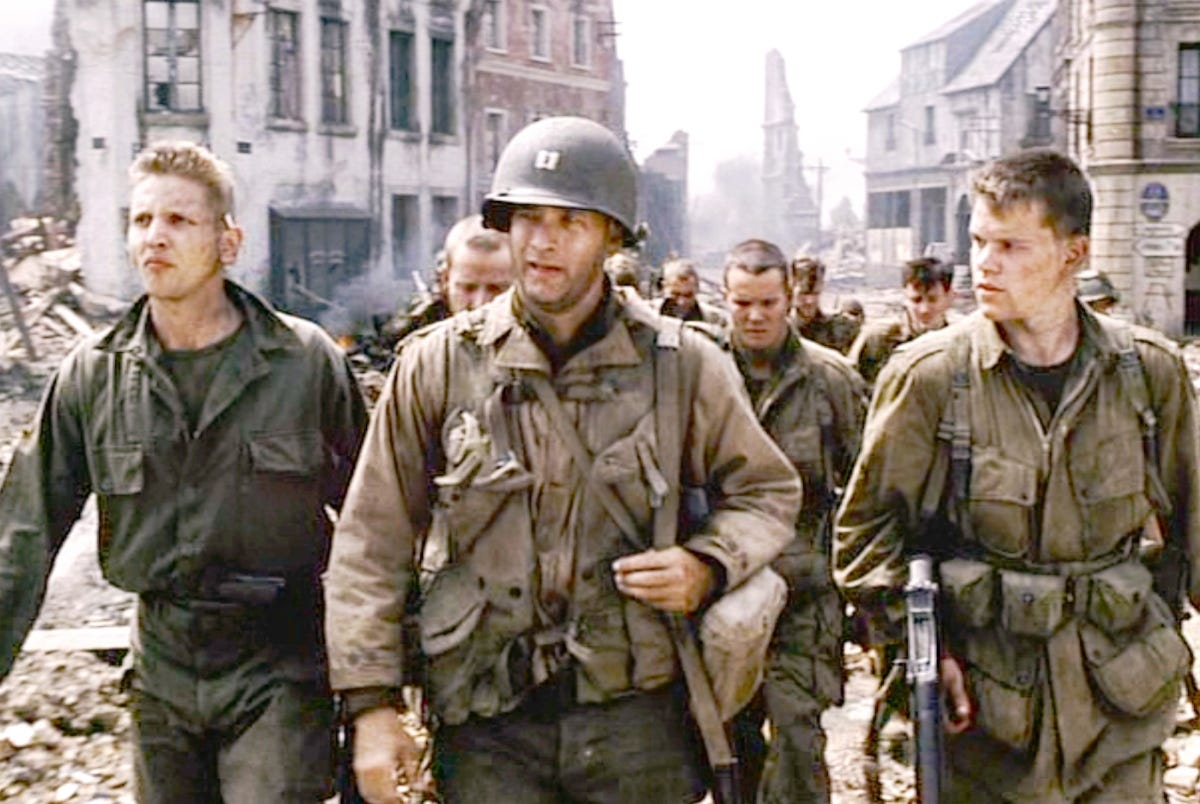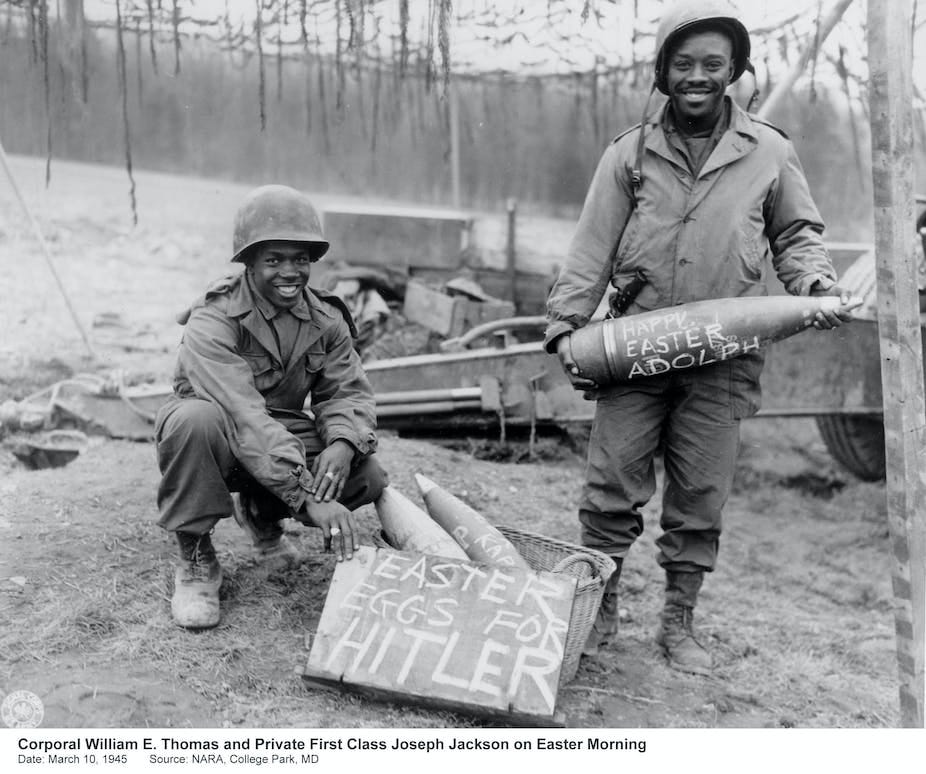Black G.I.'s served on D-Day, too...
Get the Point!
D-Day: June 6, 1944…
79 years ago today, Allied Forces under the command of future American President Dwight D. Eisenhower began an assault of the Normandy Coast of France that would soon lead to the end of Adolf Hitler's Third Reich.
As a life-long lover of history, I have always struggled with knowing that thousands of Blacks served in the military during this invasion in a number of capacities, but that I never saw any of them depicted in popular movies like "The Longest Day" or "Saving Private Ryan."
Tom Hanks (center), Matt Damon (right) and Barry Pepper starred in “Saving Private Ryan,” the 1993 Steven Spielberg classic about D-Day and the weeks that followed during World War II.
The whitewashing of D-Day in Hollywood is of no surprise, mind you, considering the film industry's legendary history of racism. Nevertheless, it is important for those of us who know better to remind that Blacks also served in World War II and instead of returning to a heroes welcome when they got back to the States, most returned praying to not get lynched in their uniforms in the Jim Crow South.
Today, I want to point out one seldom discussed aspect of the Black experience during World War II, which is that of military grave diggers. Consider the reminisces of Sgt. Jefferson Wiggins, a soldier whose Black quartermaster's unit was responsible for digging the graves of the fallen as the Allies fought across Hitler's "Fortress Europe."
Due to warm temperatures in June of 1944, the overwhelmingly Black Army gravedigging units had to work nearly 'round the clock to inter remains of fallen American and German soldiers to alleviate the stench and stop the spread of diseases due to decomposition…
Sgt. Wiggins estimated that his unit alone buried 20,000 service members who fell in battle. As winter set in, these grave digging soldiers not only had to contend with being killed by mortar, tank, or small arms fire themselves, but were forced to use shovels and pick axes to dig into the frozen dirt to make graves per Army specifications. Each man was tasked with digging three graves per day, and they buried the fallen—mostly white soldiers—without caskets as many died with horrifically mangled bodies that were burned beyond recognition.
Said Sgt. Wiggins: "There were some (Black) soldiers who actually cried when they were digging the graves, particularly when they started to lower the mattress covers (used as body bags) into the ground. They were just completely traumatized. And here we all were - this group of Black Americans having to deal with these bodies of white Americans. The situation brought vivid thoughts to my mind. The stark reality was we had to bury those white soldiers although we couldn't sit in the same room with them when they were alive. 'Something is wrong here,' I thought."
Indeed, sir...
Thank you for your service, Sgt. Wiggins, and while I pay homage to all American service personnel who died to destroy Nazi tyranny, I will forever hold special reverence for the Black soldiers who fought the racist Nazis in the field, and their Jim Crow adhering comrades in arms within the American military.
Lest we forget...







Thank you!
Thank you! THANK YOU!!